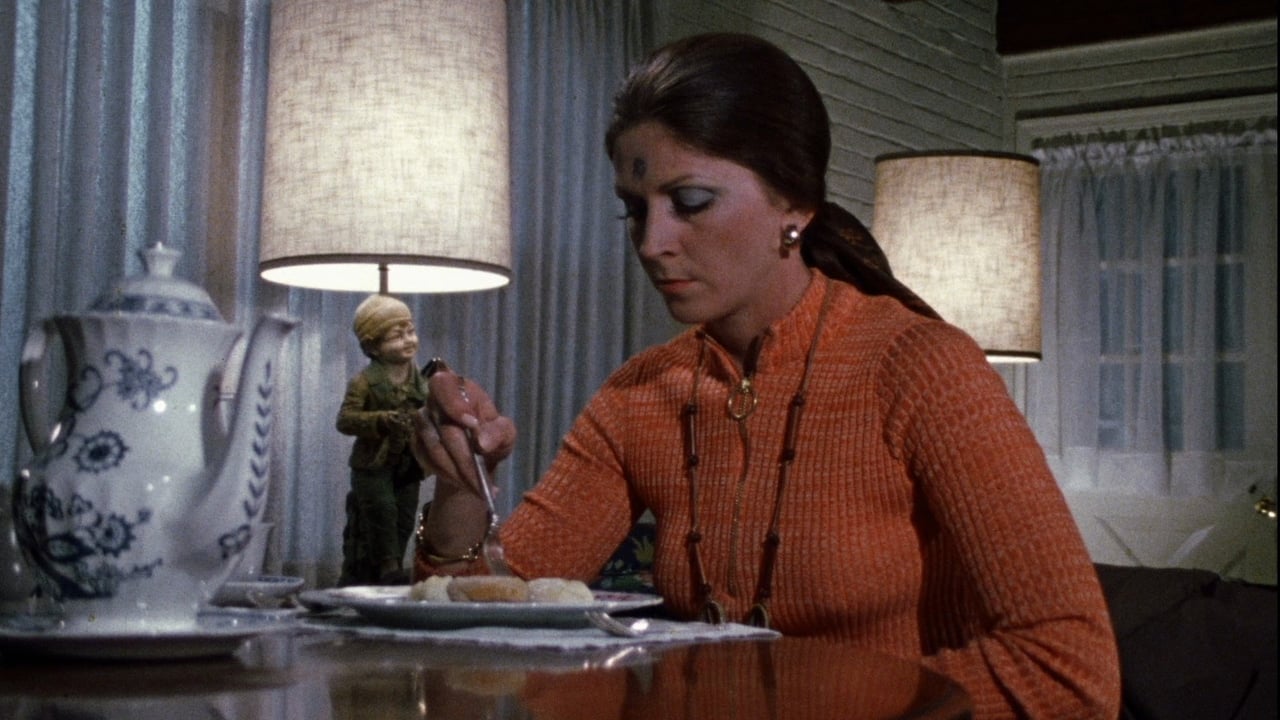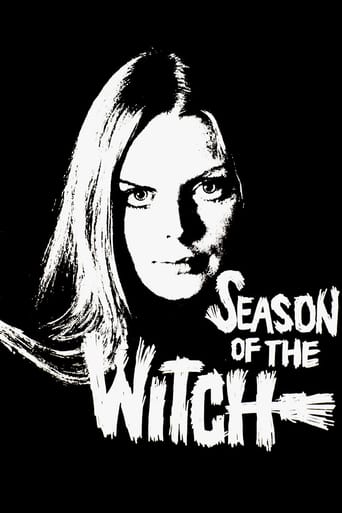

This is nearly an auteur film for George Romero, acting as director, editor, cinematographer and screenwriter (with his wife producing). Inspired by the occult and feminism, two major movements of the early 70s that play nicely together, the film was shot with a small crew for $100,000 (originally budgeted for a quarter million).The film had issues finding distribution, with several of them demanding hard core scenes. Jack H. Harris (producer of The Blob, Equinox, Eyes of Laura Mars and Dark Star) finally distributed it as Hungry Wives, cutting nearly 41 minutes from the films running time (the version on the Anchor Bay DVD is still missing 26 minutes, which are presumably lost forever as the original film negative and director's cut are thought to be gone forever).The film has the feel of pornography with none of the payoff, something noticed by critics. Others consider it a film that's unsure of its approach — indeed, how do you follow up a film like Night of the Living Dead which totally nails it and reinvents the horror genre without doing more horror? Romero's efforts in this period feel like avoidance — yet knowing that the grave (slumming it in the horror genre) beckons.Joan Mitchell is Jack's wife, introduced to us as walking through the woods that look eerily similar to the Evans City gravesite that opens Night of the Living Dead. Together, they live in the Forest Hills suburb of Pittsburgh (this movie is so yinzer that it thanks Foodland in the opening credits) with Nikki, their 19-year-old daughter. Much like many of the characters of Romero, they're Catholic and find their faith ill-equipped for the changes that the end of the 20th century brings to them.Read more at http://bit.ly/2yx7Om2
... View MoreSeason of the WitchWomen gravitate towards Wicca, because unlike Christianity it doesn't consider them to be the harbingers of sin.Unfortunately, this horror movie about the earth-centric religion is not the best example of that aforementioned assertion.Plagued with recurring nightmares of her traveling husband, bored housewife Joan (Jan White) seeks the spiritual counsel of her tarot card-reading neighbour (Virginia Greenwald), who is also the head priestess of the neighbourhood coven.Convinced that she too is a witch, Joan goes a little nutty, which results in her using witchcraft to seduce her daughter's TA, and get away with murder.A psychological trip through the mind of a lonely housewife, Season of the Witch is a less- zombified movie than what director George A. Romero is known for; however, it's just as insightful.As for which one is hotter: zombie or witch? When you get Skyclad with a witch their decomposing genitals don't fall off. (Yellow Light)
... View MoreIf you are like me and you saw this is a Romero movie and it is categorized as horror, go no further! This is not a horror movie, but more of a housewife drama.You have this married woman, entering what for men would be called a midlife crisis, bored out of her skull because her husband is always at work, secretly jealous of her daughter for having a life, who starts dabbling with witchcraft and having affairs. That's all there is to the movie. She slowly slips into insanity, but that is not horror, merely a medical case.For the first hour nothing happens. Then for the next half hour, we see her burning black candles and having sex (not really seeing it, though). Then the movie ends. Seriously, don't watch this!
... View MoreThis thin and sometimes uncertain movie is never a mess, not even when it seems improvised: the 'arty' cutting is too assured. This is a surprise even though we are dealing with Romero after all who knows what he's doing. But we are only used to him applying his talents to horror, and that's not what 'Season of the Witch' is - it's Diary of a Mad Housewife with exploitation frills and an upstart feel that definitely ain't radical chic. Romero shows a lot of compassion for this landlocked suburban housewife, and explicitly distances himself from her hipster love interest's contempt. But after this weird Cassavettes thing in the first act, everything gets verrry metaphorical - the secondary characters are metaphors for housewife's emotions, housewife is metaphor for social repression - and this works better in horror than it does in drama. Leaving us with a very weird, arty, failed yet accomplished experiment by a guy who loves his medium, kind of a pre-Martin notepad sketch.
... View More